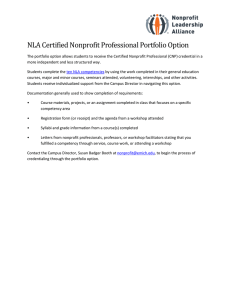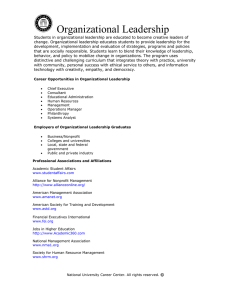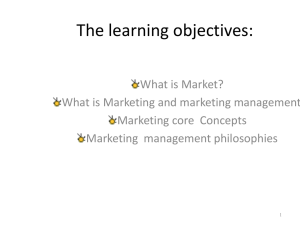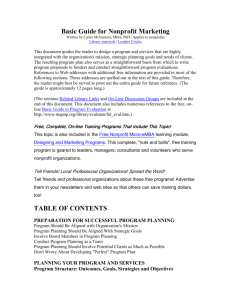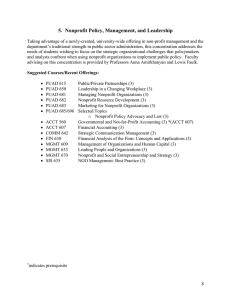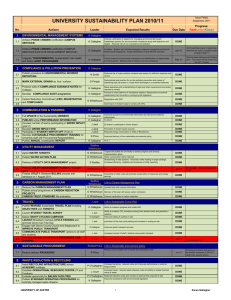Testimony of Megan Gallagher Senior Research Associate, Urban Institute
advertisement
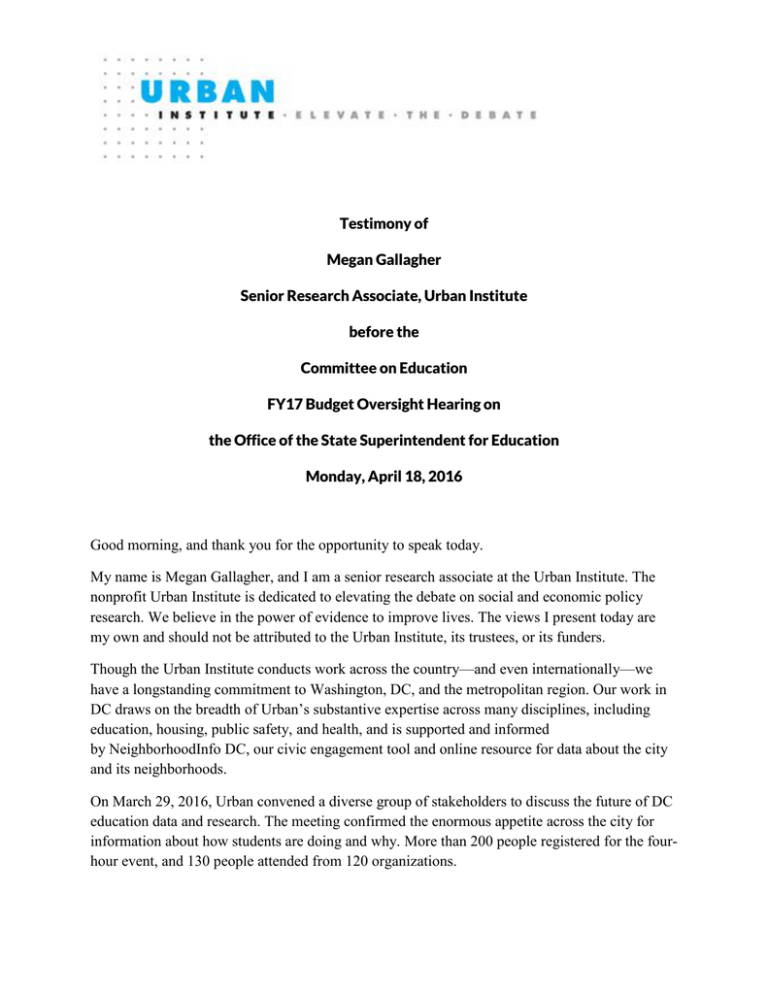
Testimony of Megan Gallagher Senior Research Associate, Urban Institute before the Committee on Education FY17 Budget Oversight Hearing on the Office of the State Superintendent for Education Monday, April 18, 2016 Good morning, and thank you for the opportunity to speak today. My name is Megan Gallagher, and I am a senior research associate at the Urban Institute. The nonprofit Urban Institute is dedicated to elevating the debate on social and economic policy research. We believe in the power of evidence to improve lives. The views I present today are my own and should not be attributed to the Urban Institute, its trustees, or its funders. Though the Urban Institute conducts work across the country—and even internationally—we have a longstanding commitment to Washington, DC, and the metropolitan region. Our work in DC draws on the breadth of Urban’s substantive expertise across many disciplines, including education, housing, public safety, and health, and is supported and informed by NeighborhoodInfo DC, our civic engagement tool and online resource for data about the city and its neighborhoods. On March 29, 2016, Urban convened a diverse group of stakeholders to discuss the future of DC education data and research. The meeting confirmed the enormous appetite across the city for information about how students are doing and why. More than 200 people registered for the fourhour event, and 130 people attended from 120 organizations. My testimony today reflects the viewpoints of the parents, teachers, school leaders, nonprofit service providers, researchers, and policymakers that attended the event. Discussions explored whether existing data meet the needs of key city stakeholders, are accessible and accurate, are available at the student level, and are linked to specific schools, programs, and investments. Some examples: A teacher begged for actionable data about his incoming math students A parent described the challenge of obtaining her child’s complete transcripts A school leader requested more time to collect information about how students are responding to new programs A nonprofit service provider recalled entering student attendance data by hand to measure the efficacy of a truancy program Policymakers discussed the limitations of current data systems and the need for human capital to establish new systems Other cities facing similar challenges have implemented research practice partnerships to tackle these issues. Research practice partnerships come in many shapes and sizes, but they are all aimed at bringing together researchers and practitioners to solve problems that neither can solve alone. Chicago, New York, New Orleans, and Baltimore all have research alliances that use detailed student-level databases to answer questions of immediate interest to local stakeholders. The school system plays a key role in setting the research agenda, but the alliance’s research is independent. In some cities, including Chicago, the research alliance also helps with ambitious data collection efforts, such as the administration of school climate surveys. Washington, DC, is one of the few major American cities without a research-practice partnership working to benefit its students. The recent convening at the Urban Institute demonstrated that education stakeholders across the city would welcome opportunities to enhance how data and research serve DC’s students.

